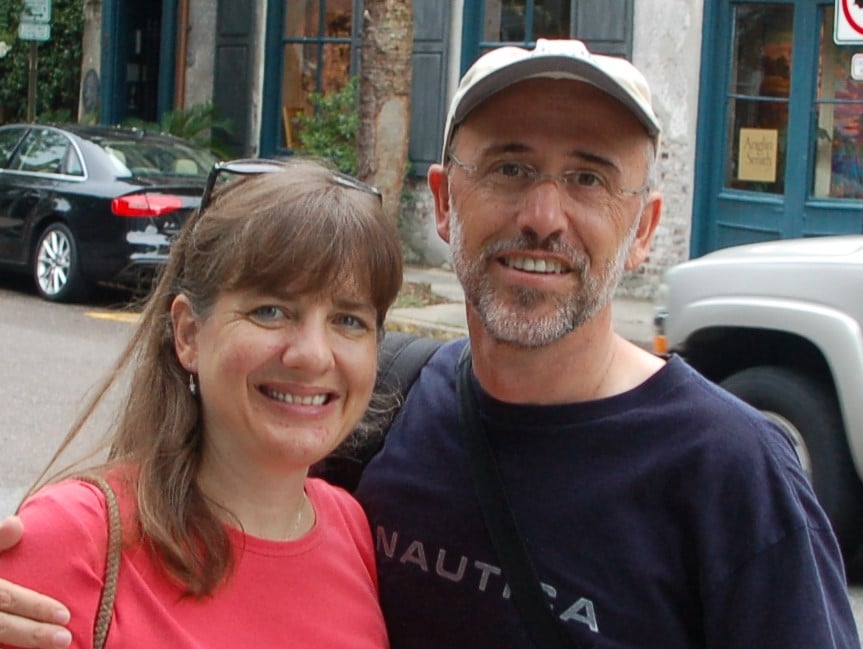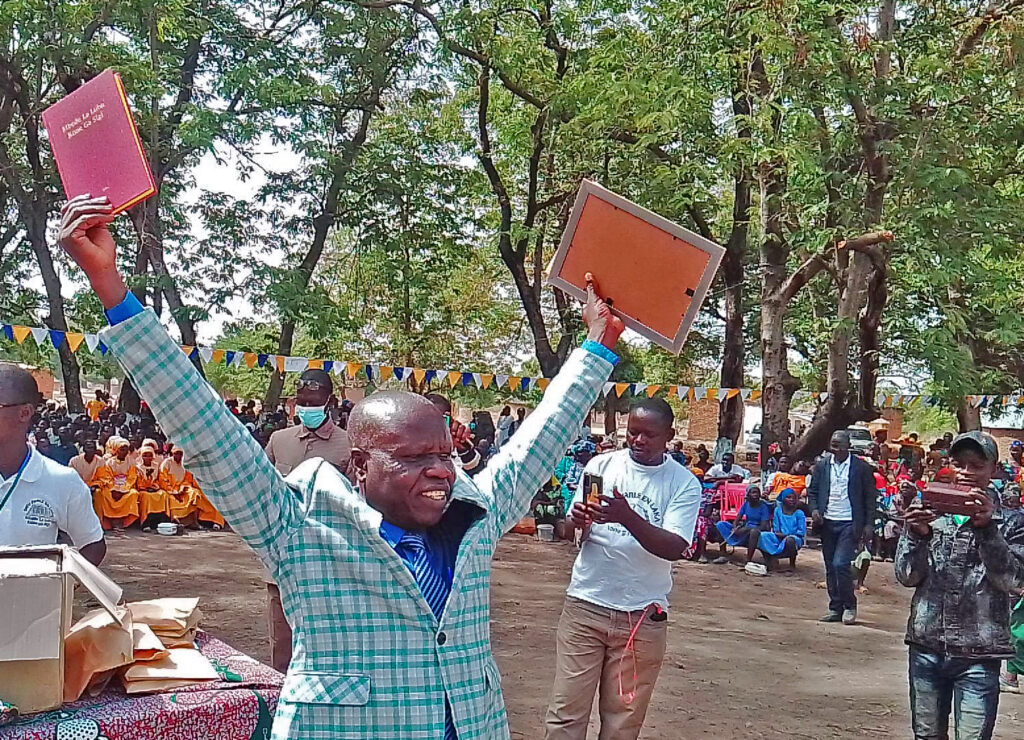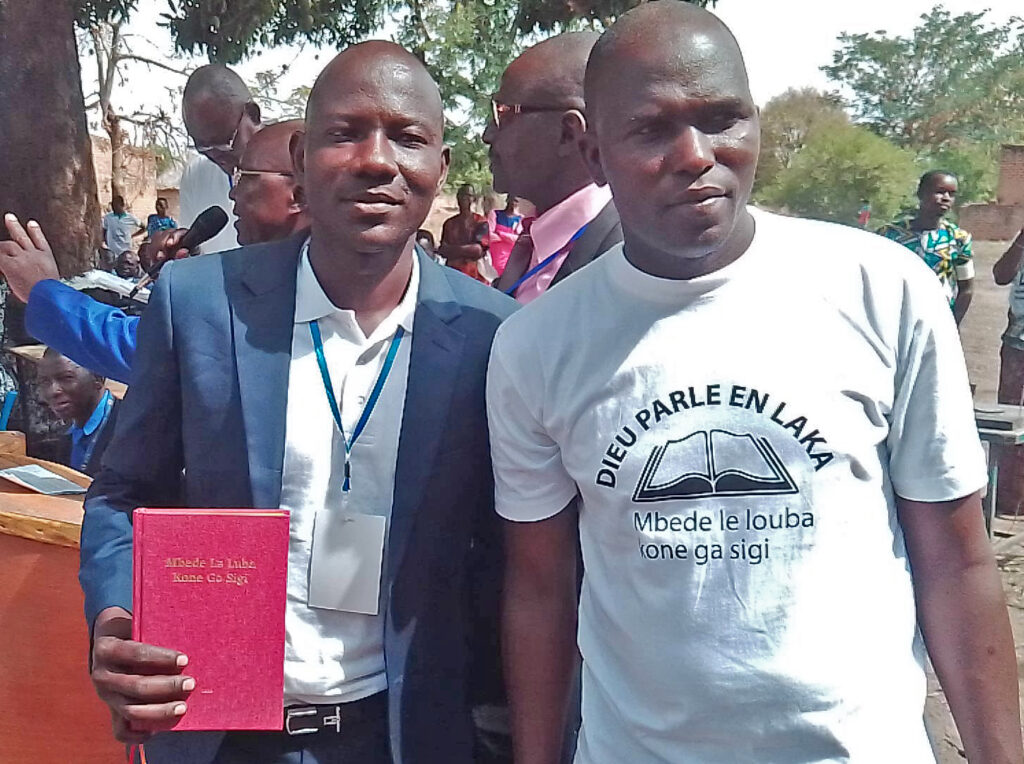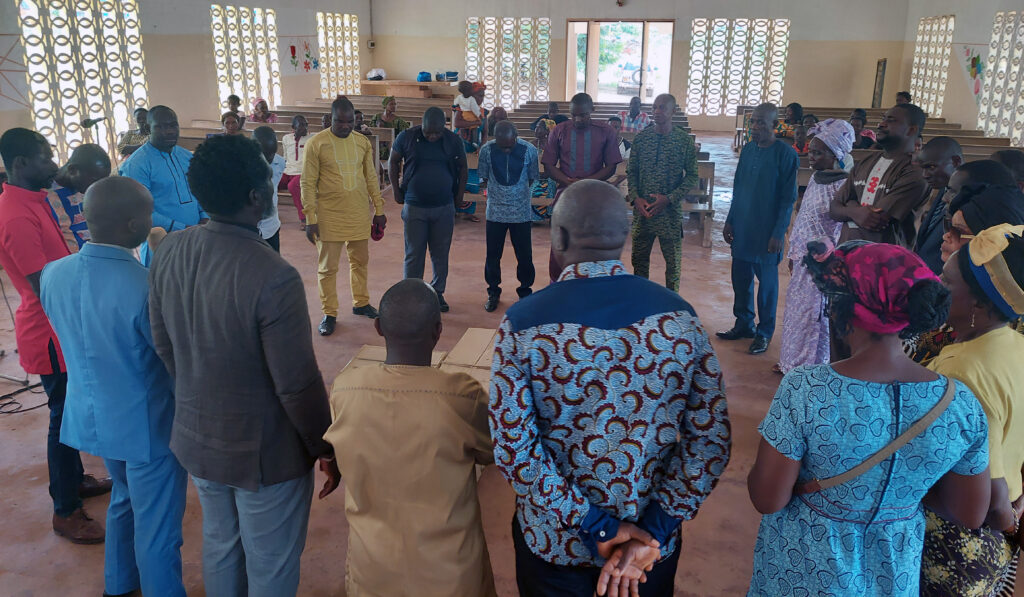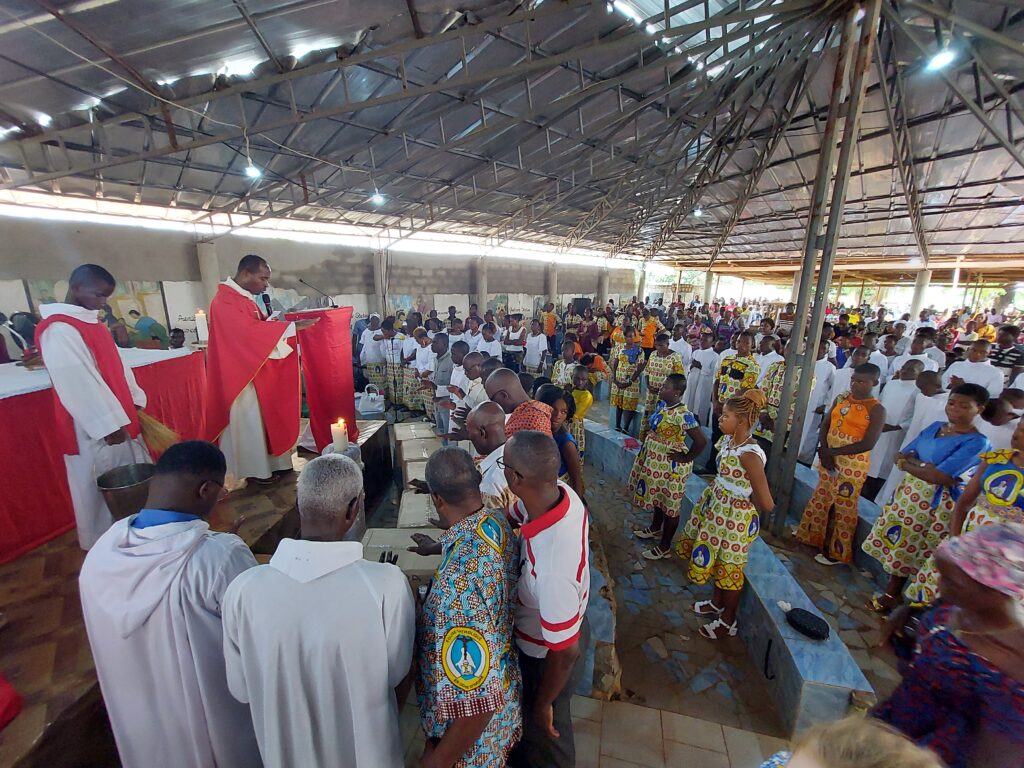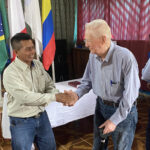To Go In Peace
Perfect love drives out fear.
—John the Apostle
I had five passengers and two stops to make. I’d just landed at an airstrip in Fayu territory to drop off three of the passengers. The plan was then to take the other two, a young Elopi couple, on to their village 15 miles away. I swung out of the seat and down to the muddy airstrip. As I’ve done perhaps a thousand times, my hand automatically reached back to the latch to open the rear door of the aircraft. Finding the familiar handle, I immediately felt another hand clamp itself firmly on top of mine. Someone didn’t want that door open.
“What’s the matter?” I asked.
“I’m scared. I’m not getting out of the airplane,” came the response. The voice belonged to the Elopi man I was to drop at the next village. It dawned on me that historically the Elopi and the Fayu had done their level best to wipe each other out. A recent ambush had left three people dead. The fact that 30 Fayu men were standing along the edge of the airstrip, armed to the teeth with bows and arrows and spears, probably didn’t help much.
I assured my Elopi friend that these people weren’t party to the warfare; they were armed for self-defense … or hunting perhaps? These Fayu, I promised, were friendly and wouldn’t hurt him or his wife. I even gave him my personal guarantee of his safety. No dice. His hand remained firmly clamped on mine preventing me from opening the door.
“OK,” I thought. “You can wait in the airplane and roast if you want. Twenty minutes past noon, 200 feet above sea level, 4 degrees below the equator, 45 degrees above comfortable, and you and your bride want to stay in the greenhouse-like Helio? Suit yourself.”
I went about my business of getting the other passengers out of the airplane—the two seated in the aft seats actually had to climb over the immovable couple. I then began to unload the cargo pod.
As usual, the people from the Fayu community began crowding around the airplane. I noticed several talking through the window to the man and his wife in the middle seats. Because the Fayu and Elopi languages are mutually unintelligible, they had to use Indonesian, which meant I could understand the conversation.
The Fayu were attempting to convince our man that they were friendly, trying to reach their arms around the firmly clenched door to shake his hand. Pulling cargo out of the pod, I kept a close eye on the proceedings. Despite the confident voice of my own assurances, I wasn’t 100 percent convinced of the Fayus’ peaceful intentions myself. The Fayus kept repeating a phrase. I had to listen closely to catch it.
“Don’t worry, we have Jesus now.”

The next thing I knew, the door was open and our passenger was walking toward the jungle at the edge of the airstrip, hand-in-hand with his erstwhile enemy. This caused me no small degree of alarm. Treachery is a highly esteemed character trait in these parts—using friendliness to break down a victim’s guard before moving in for the kill. I jumped in with a query as to what was going on. It turns out our Elopi passenger had a very real need to visit the Little Boys’ Room (which, in the Papuan context, is any part of the jungle not currently being used as a Little Girls’ Room). The Fayu man at the airplane’s door had guaranteed the Elopi passenger’s safety and would hold his hand for the entire time he was out of the airplane as a sign of that guarantee.
Greater love has no man …
than to hold the hand of an enemy so that he can ‘go in peace.’
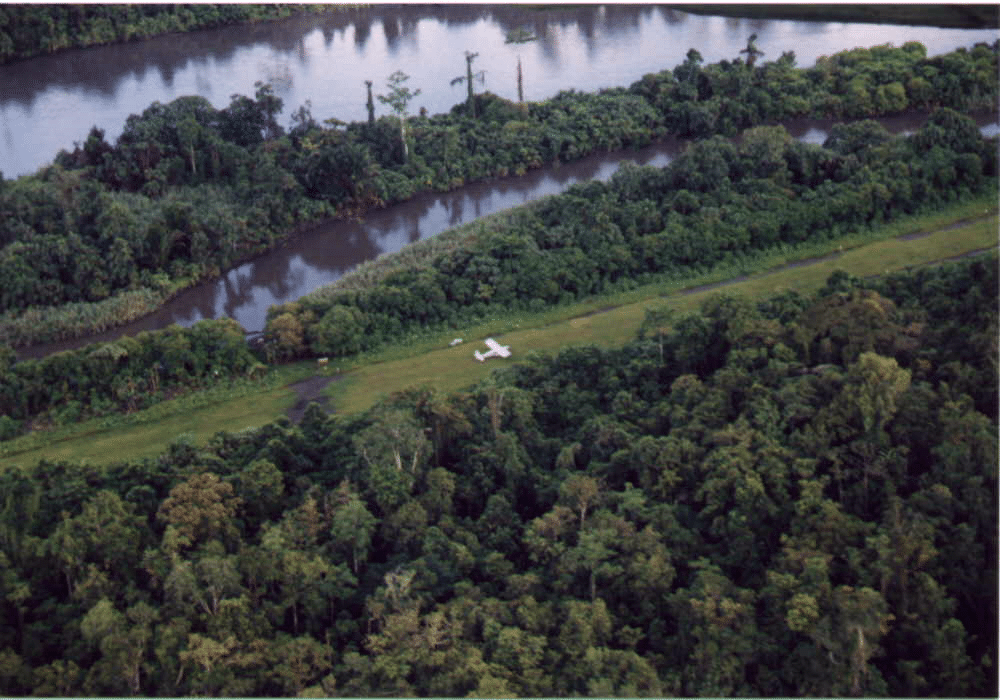
Building this airstrip by hand, in the middle of the jungle, was a five-year herculean feat. For that matter, everything about reaching the isolated peoples of Papua consumes an enormous amount of time, money and effort. Why bother?
“Don’t worry, we have Jesus now.”
That’s why.


